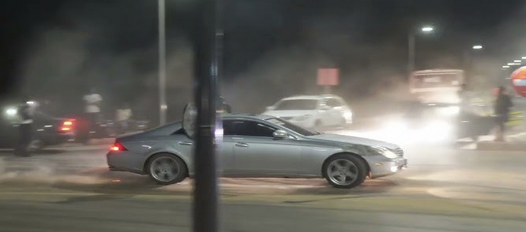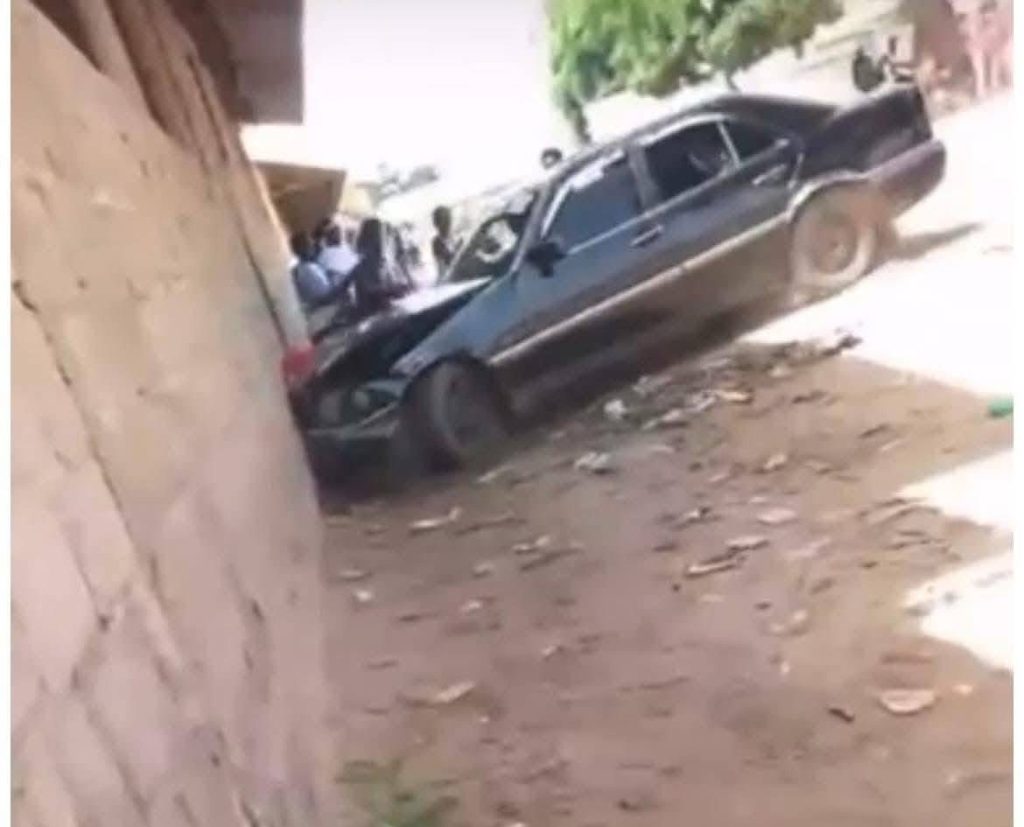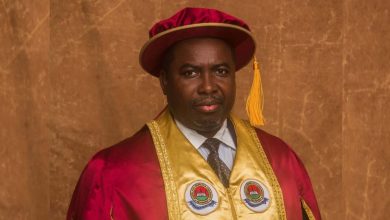
Drifting, a global motorsport that involves spinning a fast-moving car to twist and turn, was quickly gaining traction in The Gambia until police initiated a crackdown in response to public concerns about safety.
The sport, primarily engaged in by teenage drivers in the country who call themselves “Outlawz”, faced increasing hostility in recent years, prompting law enforcement to take action against drifters.
Typically in The Gambia, this activity tends to spike during school holidays and weekends, as young people gather to drift in public areas such as roads, beaches, football fields, and any available open spaces.
What is drifting?
Drifting is a driving technique and motorsport in which a driver deliberately oversteers a car to lose traction, causing the vehicle to slide sideways through a turn. It originated in Japan during the 1970s.
Since then, the sport has transformed into a globally recognised competition, evaluated based on skill, style, and precision rather than merely speed.
Drifting methods
Drifting is the practice of intentionally breaking the traction of the rear (or all) wheels to allow the car to slide sideways through a corner.
Its practice demands exact control of the throttle, brakes, and steering to sustain the skid, emphasising style and skill over other racing forms.
In competitions, drivers are assessed on speed, angle, and closeness to a specified path or line, often in a “twin battle” format where a chaser closely follows the lead car.
Emergence of drifting in Gambia
In recent years, young drivers, often referred to by law enforcement as “unlicensed drivers,” have been at the forefront of car drifting.
They are frequently cheered on by their peers in various locations, including roads, beaches, and football fields, where they practice drifting.
Despite the associated dangers, these youngsters persist in engaging with the sport.
For those participating in drifting, it is a sport that they believe the government should recognise and regulate.
“Drifting is not a crime; we want the government to acknowledge this as a sport,” stated Modou Cham, a drifter.
Massive arrest of drifters
The police have conducted a significant crackdown on drifters, arresting over 20 individuals following clashes between drifters and residents in Jabang, a community on Gambia’s west coast.
The incident took place when a convoy of more than 30 drifters entered Jabang during the summer holiday and faced hostility from residents who threw stones and damaged some vehicles.
Following the incident, 22 drifters were arrested and charged with various road offences.
The police have also secured convictions for over five individuals, mostly teenagers involved in drifting, who are now serving at least two years in prison with hard labour.
Call for legislation of drifting sport
Despite the intense criticism and calls for police action against drifting, young drifters have organised to form an association aimed at advocating for the legalisation of drifting.
Omar Beyai, a drifter, mentioned that they are working on registering their association to promote the legislation of drifting as a recognised discipline to reduce its risks to lives and property.
“We don’t approve of what the young people are doing in the streets. It poses dangers to everyone. We seek a solution, and that’s the way forward,” he said.
Mr Beyai acknowledged the seriousness of drifting in public spaces and expressed regret to all victims of drifting.
“It’s unfortunate to see people losing their lives due to drifting. I apologise on behalf of all drifters and hope the public can forgive us,” he conveyed.
Meanwhile, Musa Dahaba, another experienced drifter known as “elder” among drifters, stated that they are engaging with stakeholders to find a lasting solution to drifting.
“Currently, we have urged all drifters to cease immediately until we identify a better solution,” he remarked.
Omar and Musa, who are leading the push for the legislation of drifting, emphasised that all they require is a license from the government to professionalise the sport and implement robust safety measures.
What does the law say about drifting (dangerous driving)?
According to Section 49 (1) of the 1948 Motor Traffic Act, if a person drives a motor vehicle on the road, lorry park, or public place recklessly, or at speed or in a manner which is dangerous to the public, having regard to the circumstances of the case, including the nature, condition and use of the road, parking place or other public places, and the amount of traffic which is actually at the time, or which might reasonably be expected to be, on the road, parking place, or public place, he or she commits an offence.
Below is a copy of the Motor Traffic Act 1948

Conviction of drifters
In August 2025, five individuals were convicted of traffic-related offences, including dangerous driving and drifting, in two separate cases in The Gambia.
In the first case, five “Jabang drifters” received prison sentences and fines.
In the second case, a “school drifter” from Abuko was sentenced to prison and ordered to pay significant compensation to the victim.

Image showing when Malick Badjiea, a drifter, hit a teenager at Abuko school.
The convicted drifters included Momodou Martin Sanyang, Seringe Mass Gaye, Muhammed Bah, Ismaila Faal, and Samba Ceesay in relation to drifting in Jabang.
They were sentenced after admitting guilt to multiple traffic-related offences, including dangerous driving and drifting.
Additionally, Malick Badjie, another teenage drifter, was sentenced for dangerous driving that nearly caused a fatal injury to a 13-year-old boy in Abuko school.
He received a three-year prison sentence and was ordered to pay a mandatory compensation of D1m to the victim; if he defaults, he should serve another three years in prison.
In The Gambia, several people have died from drifting, while dozens sustained serious injuries.
On Aug. 11, 2025, Sanneh Cham, a petty trader at Latrikunda Piccadilly Junction, was hit by a drifter identified as Bubacarr Sawo, known as “Daddy,” which led to her leg amputation.
Recently, she appeared at the Bundung Magistrate’s Court to testify on her near-death experience.
On May 14, 2025, one Ousainou Kebbeh was knocked and killed by a 19-year-old drifter identified as Albert Pierrera while leaving Amie Magassy, 19, and Muhammad Jagana, 16, all residents of Kotu, with serious injuries.
The Public Relations Officer of The Gambia Cadet ASP Modou Musa Sisawo has warned that the police will not take it lightly on anyone who is found drifting in public spaces.
Conclusion
Drifting, as a globally recognised Motorsport in many parts of the world, including Africa, remains a prohibited sport in The Gambia and is considered dangerous driving. It has sent several people to prison.
Despite drifters’ call for its legalisation, the sport continues to face severe criticism, and drifters are often labelled “indisciplined” individuals due to the loss of lives and properties it has caused.
 How does the new tax law affect you? Here are five key things to know
How does the new tax law affect you? Here are five key things to know Is National Youth Empowerment Fund legitimate government programme?
Is National Youth Empowerment Fund legitimate government programme? No evidence new INEC chairperson, Amupitan, was Tinubu’s lawyer
No evidence new INEC chairperson, Amupitan, was Tinubu’s lawyer Misleading! Freetown International Airport not best in Africa
Misleading! Freetown International Airport not best in Africa